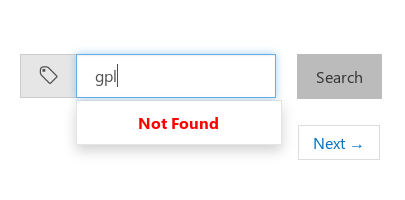Recently there’s been a hiccup in the free software world following… Well, I guess, following the arch-enemy joining the Open Source Initiative. @mk1 posted on the FSFE general discussion mailing list a message asking whether the topic of “open source” vs. “free software” was still a relevant topic. His post was a reply to Scott K Peterson, a lawyer at Red Hat, who implied that « people still believe that the terms “Open Source Software” and “Free Software” are referring to different software: they are not! » wanted to clarify Matthias.
I’ve been working on the topic myself and with due respect, I think the event of the software company from Redmond joining the OSI is of cataclysmic significance. If one can believe that this company was changed by its contact with open-source, to the point it concedes defeat, it’s hard to think such a company has any other will than to dissolve software freedom, since it ever has. This affair smells like a case of flour-covered wolf paw slipped through grandma’s door – or for younger people who grew up on news rather than fairy tales : a case of Muammar Gaddafi’s yoyo between US-propaganda-made world terrorist #1 and a true friend of Occident (and back.) The term “open source” has never been so hollow and misleading. I repeat, as others do, that if in theory “open source” and “free software” are in the same family, in practice, the former has derived away from the public, into the private sphere. See for example:
Certainly, “the enemy is proprietary software.” But now that major proprietary software companies are in the OSI, we can certainly question if these are not the enemy within. A short lookup on M$'s “open-source” repository catalogue clearly demonstrates there’s a significant difference between Copyleft licenses such as the GPL, and patent-friendly, enclosure-friendly licenses:
Incidentally, this distinction is also made at GitHub, the open-source company (almost) everyone loves. As more projects embrace so-called ‘permissive’ licenses like “MIT”, or “3-clause BSD”, free software that should belong to the public infrastructure can easily be appropriated by companies who save on R&D and development without giving back their contributions to the code. This is not only an ethical problem, but a major financial issue since professionalization of software development then increasingly comes through major (proprietary) software companies who steer developments towards their interests.
The recent choices made by Mozilla to kill Thunderbird, then to integrate DRM into their browser show without a doubt that “market influence” requires a counter-power from the public to ensure the public infrastructure remains a sensible commons and not a market-driven efficient funnel for corporate and power interests. This is exactly where the distinction between “open-source” and “free software” has always existed: free software claims to defend users’ freedoms, while open-source is only concerned with productivity and efficiency. Without embracing the collective freedoms to modify the code and to share the code, we let corporations – formerly proprietary tycoons – lead where the technology is going… And it’s not gonna be in the people’s interest.
@bzg explained that clearly in 2013:
- open-source software means the code is open; it focuses on technical aspects, and allows code to be integrated into closed source software.
- free software means the code is libre; it focuses on ethical aspects, and prevents code from being enclosed.
Yes, both terms usually refer to the same code base, but it’s not excluded that in the near future it’s going to become harder to distinguish some open-source software from proprietary software given the question : who is this software serving? Most of M$'s “open-source” code seems to serve only them and develop their own ecosystem. How long before free software developers must become dependent on GAFAM money to continue contributing to the open-source world? If the Mozilla trend of losing great projects to market trends amplifies, we’re up to fantastic backfires when we wake up to the new reality.
It’s more important than ever, now that the Redmond ghost has passed the open entrance, that we take a step back and look at the new situation. Once again, it’s time to reposition.
In reverse order of appearance:


